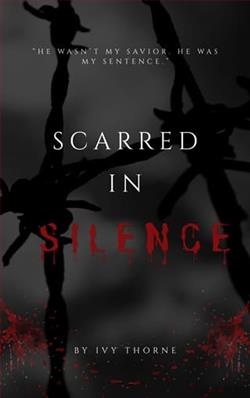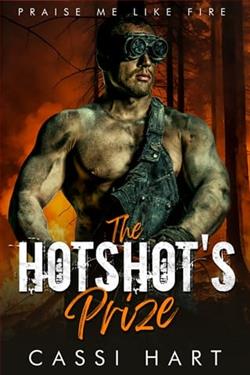Page 72 of The Children of Eve
Wen closed his eyes and took a deep breath. His palms were sweating and his heart was beating very fast. This was how men got themselves shot: by standing in a doorway, silhouetted against the stars. Eric Wen very much did not want to be killed that way. In fact, he didn’t want to be killed at all.
Wen used the barrel of his gun to push the door open wider. He tensed for the sound of firing, but none came.
“Well, shit,” he said.
Wen ignited the flashlight on the underside of the gun barrel and made his move.
CHAPTERXLIX
Lyman Bouchard had inherited the Old Hatch bar in the southwest of Loudoun County from his father, who was also named Lyman. That Lyman had previously taken over the running of the Old Hatch fromhisfather, another Lyman. In the ordinary course of events, they would, respectively, have been Lyman Bouchard III, Lyman Bouchard II, and just plain Lyman Bouchard, but the Bouchard family had always distrusted nominative numerals, even at the cost of confusion, so instead there had been Lyman, Lyman Jr.—also known as Young Lyman—and Little Lyman, the Old Hatch’s current incumbent, who weighed enough to cause anyone forced to share an elevator with him to fret for the duration of the ride.
The Old Hatch, perhaps unsurprisingly, was referred to by regulars as the Nuthatch, or occasionally the Old Nuthatch. Like all local bars, it had its share of eccentrics and deadbeats, but fewer than its nickname might have signaled because Little Lyman didn’t hold with eccentricity and had even less time for deadbeats. As far as he was concerned, only rich people could afford to be eccentric. Anyone else displaying signs of unusual behavior was just crazy. Deadbeats, meanwhile, were irritants who struggled to rustle up the price of a couple of bottles of Bud Light, neglected their children, and regularly felt compelled to raise the possibility of one on the house only to complain when they were rebuffed.
The Old Hatch was not unprepossessing. It was clean and well-run, and even during the worst times, when other bars and restaurants were raising their prices, Little Lyman found ways to make food and drink affordable for all, even deadbeats. Mostly, he achieved this by barely keeping his head above water, but thankfully, his needs were few. He was a single man and his own boss. He owned the premises and lived in a trailer behind the bar. The Old Hatch was his life and gave purpose to his existence. Without it, he would have been working on a production line, greeting shoppers at the door of the Walmart, or—and this he knew, even if he would never have admitted it aloud—occupying a regular seat in a bar much like the Old Hatch and asking for one on the house the day before his unemployment or disability check came due. Perhaps this was why Little Lyman was ambivalent about the Old Hatch’s deadbeats: they were the ghosts at his feast, the shadows that haunted him.
Currently, the Old Hatch was nearly empty, apart from an older couple, the Swishers, finishing up a basket of chicken tenders and a game of Chutes and Ladders that had been part of the bar furniture for so long that the faces of the kids on the board were greasy blurs; a pair of young strays in a deuce by the window, who were either running from trouble or soon to run into it; and a small man in a midnight-blue tweed suit seated at the end of the bar, the suit having seen better days and its wearer possessed of a rueful demeanor signaling that he, too, had seen better, and was resigned to seeing worse. His legs were so short that the tips of his shoes barely touched the footrest, his arms were strangely spindly, and his torso was curiously overdeveloped so that he gave the impression of having been assembled from the discarded parts of others, like the last human in line on the sixth day when the Lord was letting the clock run down. Still, Little Lyman had to admit that the man was weirdly compelling, and his eyes flickered with the fires of an intelligence that would not easily be smothered.
Like many bartenders, Little Lyman was an observant human beingand an astute judge of character—bad judges of character made poor businessmen and poorer bar owners—but for the life of him, he couldn’t get a handle on the stranger. Yes, his suit was tired, its color faded in parts, but it was clean and would once have constituted an expensive purchase. His reddish-brown shoes were old, comfortable, and well-polished, with fresh rubber soles and heels. His white shirt was ironed and bore no stains, while the red-and-black tie was silk, anchored by a gold stud shaped like an eye, with a green jewel at its core that might have been an emerald.
The man was sipping top-shelf whiskey—the Old Hatch’s sole bottle of Redbreast—and reading a copy ofThe Washington Postthrough a brass-handled magnifying glass. He had barely spoken except to order a drink and comment on the change in the weather, and his scent was Pinaud-Clubman, familiar to Little Lyman from the barber shops of his youth. He was clean-shaven, his skin very smooth apart from a vertical striation on each cheek, the marks so deep they might have been incised by a blade. When he’d taken his first sip of the whiskey, Little Lyman half expected to see some of the alcohol pour from those slashes and dribble down the stranger’s collar. His hair was gray-blond, kept long, and combed back from his forehead to tickle the nape of his neck. His eyes were the same green as the jewel in his tie stud; when he turned his gaze on Little Lyman, the latter felt observed by three orbs instead of two. At regular intervals, the man took time out from his newspaper to monitor what was happening around him, and the corners of his downturned mouth would drop deeper, as though what he saw had conspired to further disappoint an already disenchanted soul.
The Swishers concluded their game, settled their bill, and took off into the night. The strays in the deuce tossed a coin to decide if they’d stay for one more. It came up tails and they departed, leaving only Little Lyman and the stranger. By now it was nearly 10 p.m., and while the Old Hatch was known to stay open as late as midnight, it might also close while there was still light in the sky if business was slow. Onthe other hand, Little Lyman didn’t have a whole lot to do once he’d locked up, given the floor and tables a cursory clean, and counted the takings—not that the last was going to occupy much of his time, not tonight and not last night either, or the one before. The pandemic had loused up the Old Hatch, just as it loused up so many businesses, and custom had never returned to its former level. But change of habit alone wasn’t enough to account for the falloff at the Old Hatch, because Little Lyman had counted the dead during the pandemic. He still couldn’t look at some of the tables or stools without remembering the people who once occupied them, and who died straining for breath with their chests on fire and no family to keep them company at the last. One of these was a woman, Helena, with whom Little Lyman had occasionally shared a bed when they were both lonely enough, so he didn’t hold with vaccine scares, Fauci-blaming, or any collective amnesia about the awfulness of what had occurred, and anyone who did could shut up or find someplace else to drink.
Tonight, Little Lyman wasn’t in the mood for staring at the walls of his trailer, brooding on Helena and wondering if this was as good as life would get for him. He might as well leave the lights on here, the TV playing soundlessly in the corner, and permit the little man in the tweed suit to finish reading his paper. Who knew, he might even have another Redbreast for the road and tip commensurately.
Little Lyman strolled to the end of the bar, where a window looked out on the lot. He counted three passing cars in as many minutes. The rest of the time, Little Lyman stared only at his reflection. He was not an especially good-looking man, but he was also not an unkind one, and he was a business owner, which counted for something in his community. A few women, like Helena, had circled him over the years, but he’d never fallen hard enough for any of them to take the relationship to the next level. He might have been holding out for something better, because none of them was any more of a looker than he was, and a man had to be optimistic. Now Little Lyman had reached a stage in lifewhere the choice was to keep lying to himself for the rest of his days, or stop lying and make the most of them. Love didn’t seem set to find him anytime soon, or lust either, but contentment, or some semblance of it, still might. If it hadn’t been for the virus, Helena might have become the source of it. Then again, maybe not. The dead were simpler to idealize than the living.
He heard a rustling from behind and turned to see Mr. Blue Tweed neatly folding hisPostbefore draining the last of his whiskey. Little Lyman wandered back to stand before him.
“One more for the road?” he asked.
Blue Tweed checked his pocket watch. It was brass, not gold, and dangled from a chain threaded through a buttonhole in his vest.
“Where does the time go?” His voice held the same whispery rustle as the action of folding the newspaper. Had he not seen Blue Tweed’s lips move, Little Lyman might have been convinced thatThe Washington Posthad itself posed the question.
“Funny,” said Little Lyman, “I was thinking the same.”
Blue Tweed glanced around the bar, though the mirror before him would have confirmed that he was now the sole customer.
“I wouldn’t want to inconvenience you.”
“I got nothing else to do,” said Little Lyman. “If you’re happy, I’m happy.”
“And I’m not happy until you’re not happy.”
Little Lyman frowned.
“The man who taught me my trade used to say that,” continued Blue Tweed. “He called it the Bad Salesman’s Mantra. You know, I think I will take a last glass.”
“Same?”
“Unless you got better.”
“Only worse.”
“The same it is, then.”
Little Lyman heard the sound of the Swishers’ old F-150 startingup. It had taken them a while to leave the parking lot. Might be they’d been arguing about the game of Chutes and Ladders, for they took their amusements seriously. The F-150 dated from 1976 and counted as a classic. Its body and interior could have done with some work, but there was nothing wrong with the engine. Jack Swisher kept its workings in such fine order that the Ford looked bound to outlive its owners, who were good people but staring down the barrel of eighty. Little Lyman would miss them when they were gone. Like the F-150, they weren’t making models like the Swishers anymore.















